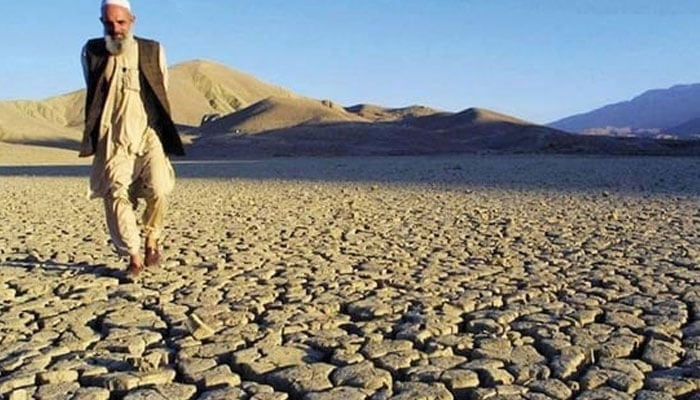Faith leaders unite in Swat to tackle climate change
MINGORA: A two-day training workshop concluded in Saidu Sharif, Swat, bringing together faith leaders from Muslim, Christian, Sikh, and Hindu communities to address the urgent issue of climate change.
The event, supported by the US Consulate General in Peshawar and implemented by the Center for Social Education and Development (CSED), provided a platform for fostering interfaith collaboration and mobilizing communities to mitigate environmental devastation.The workshop attracted public figures, academicians, and media personnel, who joined the faith leaders in developing actionable strategies.
The discussions centered on building partnerships with local government officials, civil society organizations, and academic institutions to address climate challenges.Participants highlighted the need to involve youth and women in community mobilization efforts, their roles were pivotal in driving sustainable change.
“Climate change does not discriminate; people of all faiths and backgrounds feel its impacts. As faith leaders, we have a unique role in mobilizing our communities for collective action to protect our environment for future generations,” remarked one of the participants.During the workshop, attendees identified key strategies to promote collaboration and resilience.
These included partnering with local governments to implement sustainability-focused policies, engaging civil society organizations to raise awareness, and collaborating with academic institutions to educate the younger generation about environmental stewardship.
The group emphasized empowering women and youth to take leadership roles in community adaptation initiatives to ensure inclusivity and equitable participation.An academician at the event said youth and women were the backbone of any sustainable movement.
The role of the media was underscored as essential for amplifying environmental issues and fostering interfaith cooperation.Journalists pledged to use their platforms to promote the workshop’s key messages and inspire action.
A media representative noted, “Media has the power to inspire action and hold stakeholders accountable. By covering such initiatives, we build a narrative of hope and resilience in the face of climate challenges.”
Participants concluded the workshop by drafting actionable plans tailored to their local contexts.These plans will serve as blueprints for addressing deforestation, water scarcity, and disaster preparedness in Swat and other areas of Khyber Pakhtunkhwa.
-
 Kanye West's Best Songs: Fans Argue Over Bold Top 10 Ranking On Social Media
Kanye West's Best Songs: Fans Argue Over Bold Top 10 Ranking On Social Media -
 King Charles Secretly Relies On Advice From THIS Royal
King Charles Secretly Relies On Advice From THIS Royal -
 Jennifer Garner Reveals Beauty Choice She Makes As Botox Alternative In Her 50s
Jennifer Garner Reveals Beauty Choice She Makes As Botox Alternative In Her 50s -
 Kate Middleton Drops Four-word Message For Young Girl After Wales Visit
Kate Middleton Drops Four-word Message For Young Girl After Wales Visit -
 Shamed Andrew Uncensored ‘massages’ Should Be Refunded To Public
Shamed Andrew Uncensored ‘massages’ Should Be Refunded To Public -
 Kylie Kelce Reveals Rules She Wants Daughter Bennett To Learn At 3: No More 'passies'
Kylie Kelce Reveals Rules She Wants Daughter Bennett To Learn At 3: No More 'passies' -
 Smartphone Market Set For Biggest-ever Decline In 2026
Smartphone Market Set For Biggest-ever Decline In 2026 -
 Mud, Rain, Loincloths: All About Japan’s 200-year-old Harvest Wrestling Ritual
Mud, Rain, Loincloths: All About Japan’s 200-year-old Harvest Wrestling Ritual -
 Jonathan Majors Set To Make Explosive Comeback To Acting After 2023 Conviction
Jonathan Majors Set To Make Explosive Comeback To Acting After 2023 Conviction -
 Next James Bond: Why Jacob Elordi May Never Get 007 Role?
Next James Bond: Why Jacob Elordi May Never Get 007 Role? -
 Maddox Drops Pitt From Surname In Credits Of Angelina Jolie’s New Film 'Couture' Despite Truce From Father's End In Legal Battle
Maddox Drops Pitt From Surname In Credits Of Angelina Jolie’s New Film 'Couture' Despite Truce From Father's End In Legal Battle -
 Meghan Markle Adds Diamonds To Engagement Ring For Jordan Trip
Meghan Markle Adds Diamonds To Engagement Ring For Jordan Trip -
 Burger King Launches AI Chatbot To Track Employee Politeness
Burger King Launches AI Chatbot To Track Employee Politeness -
 Andrew’s Woes Amid King Charles’ Cancer Battle Triggers Harry Into Action For ‘stiff Upper Lip’ Type Dad
Andrew’s Woes Amid King Charles’ Cancer Battle Triggers Harry Into Action For ‘stiff Upper Lip’ Type Dad -
 Experts Warn Andrew’s Legal Troubles In UK Could Be Far From Over
Experts Warn Andrew’s Legal Troubles In UK Could Be Far From Over -
 Teyana Taylor Reflects On Dreams Turning Into Reality Amid Major Score
Teyana Taylor Reflects On Dreams Turning Into Reality Amid Major Score




